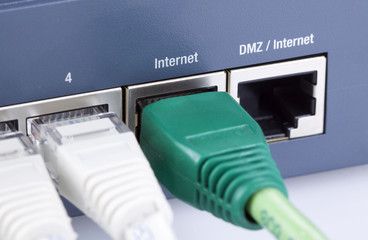
How to Get a Cisco IT Certification and Make It Count
The IT job market is extremely competitive. Whether you are a fresh graduate or someone with years of experience in the field, there will always be a better candidate for the job. Certifications have proven to be useful in such situations. The IT landscape has perhaps the greatest number of certifications available, simply because technology is a complex and ever-evolving space that requires special training and up-to-date knowledge.
Certifications are proof of an individual’s technical aptitude. They allow recruiters to know that the individual has gone through extensive training and can uphold job requirements. Certifications have also proved advantageous in securing higher salaries than what a non-certified candidate would get for the same job. And, at times, a job may require certification to perform.
One of the most popular and sought-after IT certifications comes from Cisco. Cisco Certified Network Associate (CCNA), has been proven to accelerate career growth and is widely regarded as the best certification for networking individuals.
Naturally, you will find yourself clueless at the beginning since the information can be overwhelming. Let us break down the multiple network-based certifications offered by Cisco and how you can apply for them.
Starting with the Basics
Cisco’s certifications are spread out across segments that each represent an experience level. These segments are levels that one must complete in order to move to the next one, while racking up experience that proves useful as difficulty increases.
The phases/levels are categorized as:
- Entry
- Associate
- Professional
- Expert
- Architect
Cisco provides certification tracks. These are specialized areas which you, as an individual, can choose to proceed with. Think of it as picking electives during the last year of your undergraduate program. The electives you pick highlight your area of interest.
Following are tracks which Cisco provides certifications in:
- Cloud
- Collaboration
- Cybersecurity Operations
- Data Center
- Design
- Industrial
- Routing and Switching
- Security
- Service Provider
- Wireless
Each track has its own phase/level; from Entry to Expert.
Brief Overview of Certifications
CCENT
Upon beginning your career as a networking specialist, you can start by preparing for Cisco Certified Entry Networking Technician (CCENT). This certification falls in the entry-level phase. It is meant to provide the understanding of networking in the area you choose to specialize in.
Cisco suggests that this certification is suited to individuals aspiring to pursue networking after high-school or college. There are no prerequisites to this certification. Cisco also recommends ICND1 training to prepare for CCENT certification.
CCNA
Areas of specialization open up once you enter the Cisco Certified Network Associate (CCNA) stage. This certification is suited for individuals just beginning their career or with up to 2 years of experience in the field.
Following is a brief intro of each specialization area and the corresponding training courses required to acquire certification.
- CCNA Cloud: CCNA Cloud individuals are tasked to perform entry-level jobs. They can act as Cloud Engineers, Cloud Administrators, and Network Engineers, to handle Cisco-powered networks.
Corresponding training courses: CLDFND, CLDADM
- CCNA Collaboration: Designed for areas such as voice, video, data and mobile applications. Certification allows individuals to assume the role of network video engineer, collaboration engineer, IP telephony, or IP network engineer.
Corresponding training courses: CICD, CIVND2
- CCNA Cyber Ops: Cyber Ops certification instills the necessary training to detect and respond to cybersecurity threats. They are the watchful eyes that keep security systems uncompromised.
Corresponding training courses: SECFND v.10, SECOPS v.10
- CCNA Data Center: Data Center certification provides training in areas such as unified computing, network virtualization, data center infrastructure, and more. The individual will be able to install, configure, and maintain data center technology.
Corresponding training courses: DCICN, DCICT
- CCDA: CCDA certification provides the necessary knowledge to tackle the challenges of implementing networking architecture. It requires CCENT or CCNA Routing and Switching or any CIE certification as a prerequisite.
Corresponding training course: DESGN
- CCNA Industrial: Suited to individuals working as plant administrators, traditional network engineers and control system engineers, it provides expertise in converging IT and industrial sectors. Requires Industrial Networking Specialist, or CCNA Routing and Switching, CCENT, or any CCIE certification.
Corresponding training course: IMINS2
- CCNA Routing and Switching: The certification involves training related to the interactions and network functions of firewalls, wireless controllers and access points, as well as network security.
Corresponding training course: CCNAX, ICND1 and ICND2
- CCNA Security: As a security specialist, you will develop the security infrastructure of an organization. Identify threats and eliminate security breaches, and prevent them from happening. Requires CCENT, CCNA Routing and Switching, or any CCIE certification.
Corresponding training course: IINS
- CCNA Service Provider: Network engineers, technicians, and support personnel who seek expertise in the configuration and implementation of next-generation networks can benefit from this certification.
Corresponding training courses: SPNG1 and SPNG2
- CCNA Wireless: The certification will allow individuals to configure and monitor Cisco Wireless Technology in businesses. Skills include troubleshooting and support skills. Requires CCENT, CCNA Routing and Switching, or any CCIE certification.
Corresponding training courses: WIFUND
CCNP and CCIE
Cisco Certified Network Professional (CCNP) and Cisco Certified Internetwork Expert (CCIE) are next in the following segments, in the Professional and Expert tiers, respectively. As you progress, you will be required to complete prerequisites before you can appear for Professional and Expert-level exams.
Check out Cisco’s official website to navigate your way through each certification and see its prerequisite and required training courses.
Once you have decided which path you want to take, you can start learning through QuickStart, and receive your desired IT certifications. You can then attempt a certification exam by appearing in one of Pearson VUE’s testing centers. They are an accredited entity that oversees Cisco certification exams.
Cisco certifications are not easy. For example, your CCNA certification expires after three years, unless you are reassessed. It is one major reason why Cisco certifications appear tougher than, say, Microsoft Certified Solutions Expert (MCSE) certifications. However, their value certainly makes up for such difficulties.

